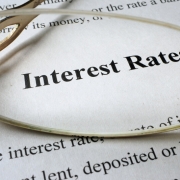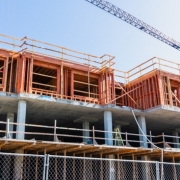A Sale-Leaseback Conundrum: Elevated Valuations Could Mean Later Problems
The Federal Reserve’s October 2023 Financial Stability Report was not the sort of reading for CRE professionals to quell their fevered concerns about the industry’s immediate future.
As the Fed wrote, “Valuation pressures arise when asset prices are high relative to economic fundamentals or historical norms.” An apt description for commercial real estate. And elevated valuation pressures can “increase the possibility of outsized drops in asset prices.”
The implications might apply to any CRE property, but on reflection, sale-leaseback transactions seem like they might be particularly prone to adverse effects under the current conditions. The problem that appears for both buyer and seller is the potential longevity of the arrangement. Getting caught by an erroneous valuation is bad enough in the short term. Over a longer period, the effect can be magnified, with more to regret over an arrangement that will run years and possibly decades.
Under a sale-leaseback, the initial owner of a property is also the occupant. That owner decides to sell the property to an investor that will become the new owner and landlord.
The initial owner wants to use the property, often over a long period of time because that party prefers to keep control for years at least or perhaps decades. So, as part of the deal, that party agrees to remain a tenant, often on a net lease basis.
It’s a common type of arrangement. The first owner wants the sale to free capital locked in the building that might be put to better use, like R&D, acquiring another business, or expanding into a new sales territory.
In normal times, understanding the true value of the property is fairly straightforward. But currently, that isn’t possible because there is a lack of price discovery. If, as the Fed suggests, properties are overvalued, then the seller might seem to get a premium, assuming that an experienced buyer won’t recognize the danger, which a bit of a stretch.
However, say the transaction happens on that valuation. The buyer will need rents going forward that justified the price it paid, and they would need to be higher than true market rents. Overly high valuation likely means higher taxes that are paid by the seller. It could be that taxes would eventually come down, but it would require the local government to reassess the property.
This doesn’t mean that a sale-leaseback with net lease can’t make sense, but it might require more thought and negotiation for changing conditions.
Source: GlobeSt.











